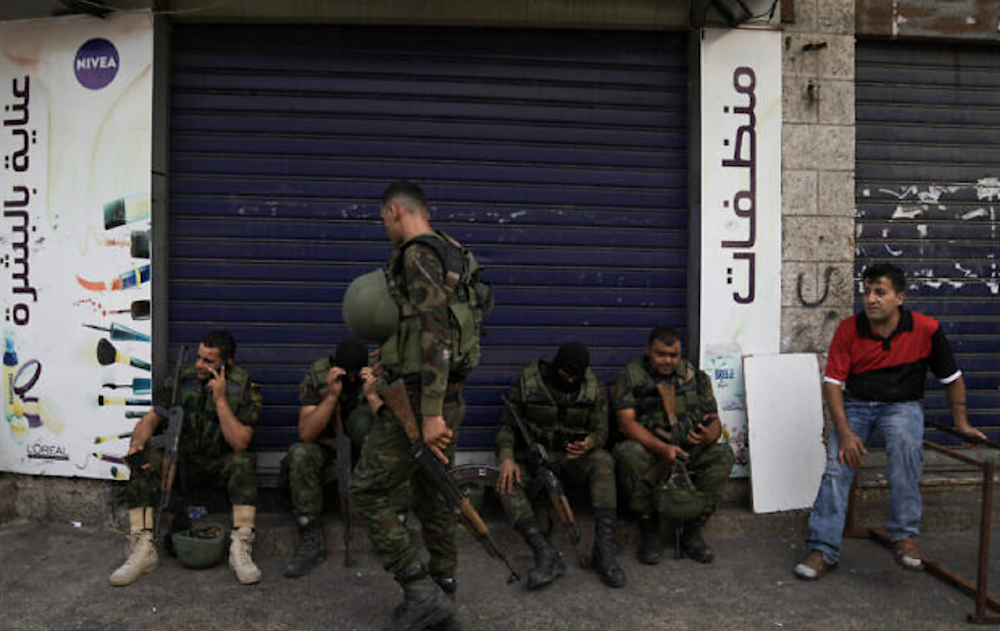US freezes funds allocated to Palestinian security forces
Brig. Gen. Anwar Rajab, a spokesperson for the Palestinian security forces, told The Washington Post that the US was a "big donor to the PA projects" that included security and training for the troops.
-

Palestinian security forces after clashes with Palestinians following an arrest raid in the West Bank city of Nablus, on September 20, 2022. (AP)
The Trump administration has cut off all financing for Palestinian Authority security forces as part of the global freeze on foreign aid, US and Palestinian sources revealed.
Last month, US Secretary of State Marco Rubio ordered a near-total halt to US foreign aid, with explicit exceptions for military funding to "Israel" and Egypt.
Washington ended direct help to the authority during Trump's first term, but it continued to finance security force training and reform.
Exercises and courses are conducted through the occupied al-Quds-based Office of the Security Coordinator, formerly known as the United States Security Coordinator (USSC) for "Israel" and the Palestinian Authority, which is comprised of a group of nations.
Brig. Gen. Anwar Rajab, a spokesperson for the Palestinian security forces, told The Washington Post that the US was a "big donor to the PA projects" that included security and training for the troops.
According to an anonymous former Israeli official, the USSC was "not affected in any meaningful way" by the freeze, and "other donors have committed to make up the shortfall."
However, the freeze has already resulted in some training cuts, according to a colonel in charge of training at the PA's Central Training Institute for Security Forces, who anonymously spoke with The Post on Tuesday.
On his first day in office, Trump issued a 90-day freeze on foreign development assistance to evaluate its alignment with his foreign policy and efficiency goals. However, the full scope of the order remains unclear, and questions persist about its legality, as Congress controls the federal budget.
“Freezing these international investments will lead our international partners to seek other funding partners—likely US competitors and adversaries—to fill this hole and displace the United States’ influence the longer this unlawful impoundment continues,” a source familiar with Congressional discussions, speaking anonymously, said as quoted by The Guardian.
The State Department memo instructed senior officials to ensure that “to the maximum extent permitted by law, no new obligations shall be made for foreign assistance” until Rubio completes a review. It also called for immediate stop-work orders on existing projects until further evaluation.

 2 Min Read
2 Min Read








